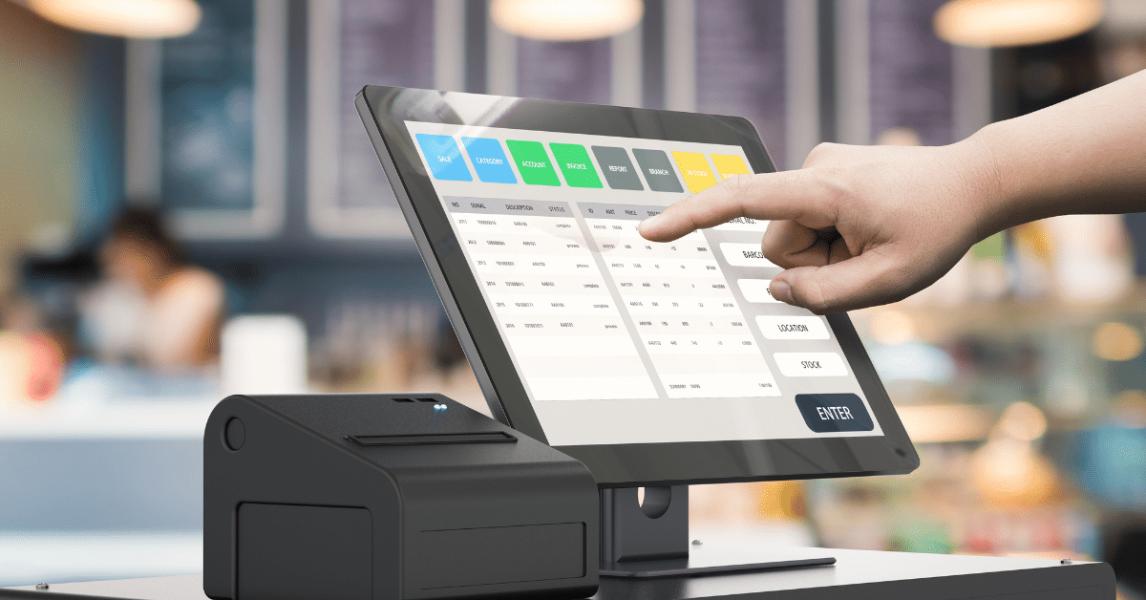In the ever-evolving and highly competitive landscape of retail, where consumer expectations continually evolve, businesses are on a perpetual quest for innovative ways to understand and connect with their customers. Amid this dynamic environment, one of the most potent tools that has emerged as a game-changer is Point of Sale (POS) data. As technological advancements redefine the retail space, the traditional cash register has metamorphosed into a powerhouse of information, providing retailers with an invaluable resource for decoding consumer behavior. In this comprehensive exploration, we’ll delve into the multifaceted ways in which POS data is revolutionizing the retail industry, unlocking deep and actionable insights into consumer behavior.
The Power of Point of Sale Data
1. Real-time Analytics
The advent of sophisticated POS systems has bestowed retailers with an unprecedented capability — the ability to access real-time data. This transformative feature empowers businesses to make informed decisions on the fly. Dynamic responsiveness enables retailers to adjust inventory levels swiftly, optimize pricing strategies in real-time to align with rapidly evolving market trends, and launch targeted promotions at the opportune moment. Real-time analytics, therefore, not only facilitate a deeper understanding of consumer behavior but also empower retailers to navigate the challenges of a dynamic market landscape with agility and precision.
2. Personalized Shopping Experience
Understanding the unique preferences of individual customers is not merely a strategic advantage; it’s a necessity in the modern retail landscape. POS data serves as a guiding compass, providing retailers with the insights needed to navigate the vast terrain of consumer behavior successfully. By meticulously studying this data, retailers can gain profound insights into individual customer preferences, shopping habits, and brand interactions. Armed with this knowledge, businesses can craft personalized shopping experiences, from offering tailor-made product recommendations to orchestrating finely tuned marketing campaigns. The result is a more engaging and satisfying shopping journey, fostering not just customer loyalty but advocacy.
3. Inventory Management
Efficient inventory management is a linchpin of successful retail operations, and POS data proves to be an indispensable asset in this regard. By providing real-time visibility into product movements, purchase patterns, and demand fluctuations, POS data helps retailers optimize stock levels, minimize instances of overstock or stockouts, and enhance overall supply chain efficiency. The granular insights provided by POS data not only improve customer satisfaction by ensuring product availability but also contribute to maximizing profitability by preventing unnecessary carrying costs and streamlining the supply chain.
4. Optimizing Marketing Strategies
In the hyper-competitive realm of retail, understanding what products are selling well and when is not just advantageous; it’s a strategic imperative. POS data emerges as a guiding light in this context, enabling retailers to identify peak shopping times, target specific customer segments with precision, and craft promotions that resonate with their audience. This data-driven approach to marketing not only enhances customer loyalty but also translates into higher conversion rates, bolstering the bottom line and ensuring a more effective allocation of marketing resources.
5. Fraud Detection and Prevention
As retail transactions transition into the digital realm, the risk of fraudulent activities looms large. POS data emerges as a shield against such threats, providing retailers with the means to detect irregular patterns, track suspicious transactions, and implement security measures. Safeguarding both customer information and the integrity of the business, POS data is an essential ally in the ongoing battle against cyber threats. The investment in robust fraud detection and prevention mechanisms, fueled by insights from POS data, becomes crucial in maintaining trust in the digital retail ecosystem.
6. Predictive Analytics
The marriage of machine learning and predictive analytics takes the power of POS data to the next level. By harnessing these advanced technologies, retailers can move beyond reactive measures and proactively anticipate future trends and consumer behavior patterns. This forward-looking approach allows businesses not only to stay ahead of the competition but also to adapt their strategies seamlessly to meet evolving market demands. Predictive analytics powered by POS data become the strategic compass, guiding retailers through the complexities of a future that is increasingly shaped by data-driven insights.
Challenges and Considerations
While the benefits of leveraging POS data are undeniable, retailers must navigate a landscape fraught with challenges. Data security and privacy concerns loom large, necessitating the implementation of robust cybersecurity measures. Additionally, the need for advanced analytics capabilities calls for ongoing investments in technology and training. Striking a delicate balance between harnessing the power of POS data and addressing these challenges is essential for sustained success.
Conclusion
In conclusion, the revolutionizing impact of POS data on the retail industry cannot be overstated. The ability to gain real-time insights into consumer behavior empowers retailers to make data-driven decisions, enhance customer experiences, and stay ahead in an increasingly competitive market. As technology continues to advance, the synergy between retail and data analytics will play a pivotal role in shaping the future of commerce, creating a win-win scenario for both businesses and consumers. Embracing the transformative potential of POS data is not just a strategic choice; it’s an imperative for retailers looking to thrive in the retail landscape of tomorrow. The strategic integration of POS data is not merely a trend; it’s the cornerstone of a customer-centric, data-driven retail future. With each transaction, POS data becomes not just a record but a roadmap to sustainable growth and lasting customer relationships. The only constant in eCommerce is change. Marketplaces and online brands need a window into now – not weeks ago. Only real-time data at your fingertips is the key to keeping up. Book a demo now to discover how Cluster can help you.




